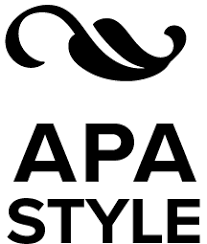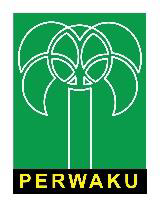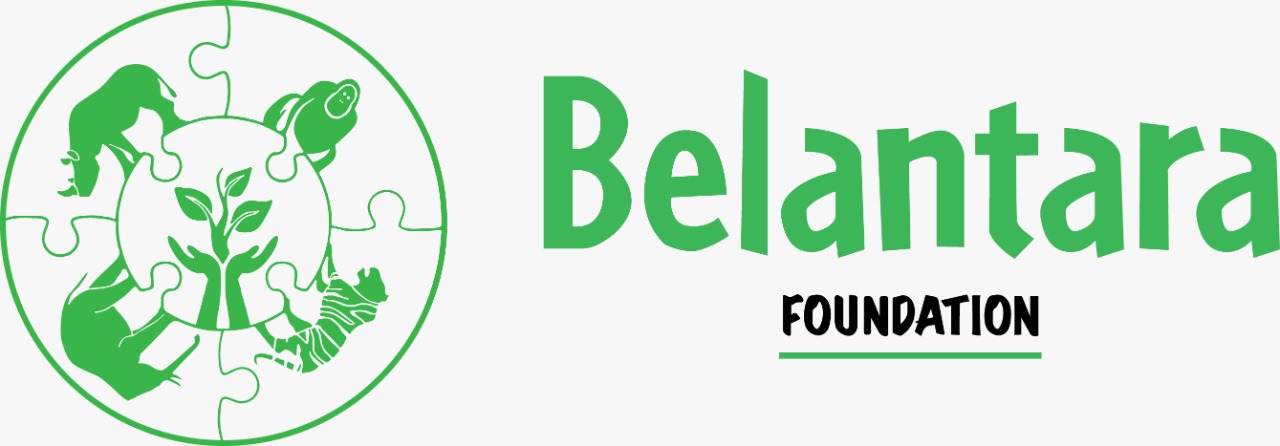Possibility of municipal waste management with Refuse-Derived Fuel (RDF) mixed paper and garden in Depok City
Abstract
Paper and garden waste are among the various types of rubbish commonly encountered in urban areas in Indonesia, including the city of Depok. Notably, not all paper waste can be recycled by garbage collectors into new products. In addition, garden waste is also garbage, one of the wastes produced daily from gardening activities. This study analyzed the potential for reducing paper and garden waste using as Refuse-Derived Fuel or RDF in Depok City. This study analyzes the quality of RDF based on the parameters of water content, ash content, density, and calorific value resulting from the material substitution. The results were analyzed using the multicollinearity and Kepner-Tregoe Decision Analysis (KTDA). The results of the multicollinearity test showed that the ash and water content could reduce the calorific value of RDF mixed with paper and garden waste. The addition of garden waste composition can increase the calorific value. Based on the results of decision analysis using KTDA, it shows that the variation of the mixture of 75% paper waste and 25% wood waste has the most prominent points compared to other variations. Material Flow Analysis (MFA) utilization of this waste can reduce the generation of paper and garden waste by 3.5% and 12.3%, respectively.
Sampah kertas dan kebun adalah beberapa jenis sampah yang biasa ditemukan di perkotaan di Indonesia, termasuk kota Depok. Perlu dicatat, tidak semua sampah kertas dapat didaur ulang oleh pemulung menjadi produk baru. Selain itu, sampah kebun juga merupakan salah satu sampah yang dihasilkan sehari-hari dari kegiatan berkebun. Kajian ini menganalisis potensi pengurangan sampah kertas dan kebun dengan menggunakan Refuse-Derived Fuel atau RDF di Kota Depok. Penelitian ini menganalisis kualitas RDF berdasarkan parameter kadar air, kadar abu, berat jenis, dan nilai kalor hasil substitusi bahan. Hasil penelitian dianalisis menggunakan multikolinearitas dan Analisis Keputusan Kepner-Tregoe (KTDA). Hasil uji multikolinearitas menunjukkan bahwa kadar abu dan air dapat menurunkan nilai kalor RDF yang bercampur dengan kertas dan sampah kebun. Penambahan komposisi sampah kebun dapat meningkatkan nilai kalor. Berdasarkan hasil analisis keputusan menggunakan KTDA menunjukkan bahwa variasi campuran 75% limbah kertas dan 25% limbah kayu memiliki poin paling menonjol dibandingkan variasi lainnya. Pemanfaatan Material Flow Analysis (MFA) limbah ini dapat mengurangi timbulan limbah kertas dan kebun masing-masing sebesar 3,5% dan 12,3%.
Keywords
References
Abdel-Shafy, H. I., & Mansour, M. S. M. (2018). Solid waste issue: Sources, composition, disposal, recycling, and valorization. Egyptian Journal of Petroleum, 27(4), 1275–1290. https://doi.org/https://doi.org/10.1016/j.ejpe.2018.07.003
Bantacut, T., Hendra, D., & Nurwigha, R. (2013). The Quality of Biopellet from Combination of Palm Shell Charcoal and Palm Fiber. Jurnal Teknologi Industri Pertanian, 23(1), 1–12. http://citeseerx.ist.psu.edu/viewdoc/download?doi=10.1.1.826.371&rep=rep1&type=pdf
Białowiec, A., Pulka, J., Stępień, P., Manczarski, P., & Gołaszewski, J. (2017). The RDF/SRF torrefaction: An effect of temperature on characterization of the product – Carbonized Refuse Derived Fuel. Waste Management, 70, 91–100. https://doi.org/https://doi.org/10.1016/j.wasman.2017.09.020
Bosmans, A., Vanderreydt, I., Geysen, D., & Helsen, L. (2013). The crucial role of Waste-to-Energy technologies in enhanced landfill mining: A technology review. Journal of Cleaner Production, 55, 10–23. https://doi.org/10.1016/j.jclepro.2012.05.032
Brás, I., Silva, E., & de Lemos, L. T. (2020). Feasibility of using municipal solid wastes rejected fractions as fuel in a biomass power plant. Environment Protection Engineering, 46(2), 53–62. https://doi.org/10.37190/epe200204
Chen, W.-S., Chang, F.-C., Shen, Y.-H., & Tsai, M.-S. (2011). The characteristics of organic sludge/sawdust-derived fuel. Bioresource Technology, 102(9), 5406–5410. https://doi.org/https://doi.org/10.1016/j.biortech.2010.11.007
Cheremisinoff, N. P. (2003). Handbook of solid waste management and waste minimization technologies. In Chemical Engineer (Issue 744). https://doi.org/10.1016/b978-0-7506-7507-9.x5000-1
Fu, Z.-M., Li, X.-R., & Koseki, H. (2005). Heat generation of refuse derived fuel with water. Journal of Loss Prevention in the Process Industries, 18(1), 27–33. https://doi.org/https://doi.org/10.1016/j.jlp.2004.09.001
Gendebien, A. (2003). Refuse derived fuel, current practice and perspectives. WRc Ref: CO5087-4.
Geueke, B., Groh, K., & Muncke, J. (2018). Food packaging in the circular economy: Overview of chemical safety aspects for commonly used materials. Journal of Cleaner Production, 193, 491–505. https://doi.org/https://doi.org/10.1016/j.jclepro.2018.05.005
Kathirvale, S., Muhd Yunus, M. N., Sopian, K., & Samsuddin, A. H. (2004). Energy potential from municipal solid waste in Malaysia. Renewable Energy, 29(4), 559–567. https://doi.org/https://doi.org/10.1016/j.renene.2003.09.003
Kementerian Lingkungan Hidup dan Kehutanan. (2021). Sistem informasi Pengelolaan Sampah Nasional. http://sipsn.menlhk.go.id
Kupka, T., Mancini, M., Irmer, M., & Weber, R. (2008). Investigation of ash deposit formation during co-firing of coal with sewage sludge, sawdust and refuse derived fuel. Fuel, 87(12), 2824–2837. https://doi.org/https://doi.org/10.1016/j.fuel.2008.01.024
Moseley, J. D., Brown, D., Firkin, C. R., Jenkin, S. L., Patel, B., & Snape, E. W. (2008). Kepner-Tregoe decision analysis as a tool to aid route selection. Part 2. Application to AZD7545, a PDK inhibitor. Organic Process Research and Development, 12(6), 1044–1059. https://doi.org/10.1021/op800033c
Nathan, G. J., Mi, J., Alwahabi, Z. T., Newbold, G. J. R., & Nobes, D. S. (2006). Impacts of a jet's exit flow pattern on mixing and combustion performance. Progress in Energy and Combustion Science, 32(5), 496–538. https://doi.org/https://doi.org/10.1016/j.pecs.2006.07.002
Priatna, D. & Monk, K.A. (2022).Environmental security and resilience Indonesia and global challenges. Indonesian Journal of Applied Environmental Studies, 3(1): 5-11. https://doi.org/10.33751/injast.v3i1.5215
Qonitan, F. D., Suryawan, I. W. K., & Rahman, A. (2021). Overview of Municipal Solid Waste Generation and Energy Utilization Potential in Major Cities of Indonesia. Journal of Physics: Conference Series, 1858(1). https://doi.org/10.1088/1742-6596/1858/1/012064
Sari, M. M., Septiariva, I. Y., Fauziah, E. N., Ummatin, K. K., Arifianti, Q. A. M. O., Faria, N., Lim, J.-W., & Suryawan, I. W. K. (2023). Prediction of recovery energy from ultimate analysis of waste generation in Depok City, Indonesia. International Journal of Electrical and Computer Engineering (IJECE), 13(1), 1. https://doi.org/10.11591/ijece.v13i1.pp1-8
Sari, M., Suryawan, I. W. K., Ramadan, B. S., Septiariva, I. Y., & Notodarmojo, S. (2022). Marine Debris Management in the Parangtritis Beach Tourism Area , Yogyakarta During Covid-19 Pandemic. Nature Environment and Pollution Technology, 21(3), 1183–1190.
Sarwono, A., Septiariva, I. Y., Qonitan, F. D., Zahra, N. L., Sari, N. K., Fauziah, E. N., Ummatin, K. K., Amoa, Q., Faria, N., Wei, L. J., & Suryawan, I. W. K. (2021). Refuse Derived Fuel for Energy Recovery by Thermal Processes. A Case Study in Depok City, Indonesia. Journal of Advanced Research in Fluid Mechanics and Thermal Sciences, 88(1), 12–23. https://doi.org/10.37934/arfmts.88.1.1223
Suryawan, I. W. K., Fauziah, E. N., Septiariva, I. Y., Ramadan, S., Sari, M. M., Ummatin, K. K., & Lim, J. (2022). Pelletizing of Various Municipal Solid Waste : Effect of Hardness and Density into Caloric Value. Ecological Engineering & Environmental Technology (EEET), 23(2), 122–128. https://doi.org/https://doi.org/10.12912/27197050/145825
Suryawan, I. W. K., Septiariva, I. Y., Fauziah, E. N., Ramadan, B. S., Qonitan, F. D., Zahra, N. L., Sarwono, A., Sari, M. M., Ummatin, K. K., & Wei, L. J. (2022). Municipal solid waste to energy : palletization of paper and garden waste into refuse derived fuel. Journal of Ecological Engineering, 23(4), 64–74.
Suryawan, I. W. K., Wijaya, I. M. W., Sari, N. K., & Yenis, I. (2021). Potential of Energy Municipal Solid Waste ( MSW ) to Become Refuse Derived Fuel ( RDF ) in Bali Province , Indonesia. Jurnal Bahan Alam Terbarukan, 10(200).
Twede, D., Selke, S. E. M., Kamdem, D.-P., & Pira, S. (2015). SECOND EDITION CARTONS, CRATES and CORRUGATED BOARD Handbook of Paper and Wood Packaging Technology David Shires, BA (Hons). DEStech Publications.
Ulhasanah, N., Widanarko, D. U. F., Erlingga, F. A., Fitrah, E. B., Aulia, W., Sari, D. M., & Rahman, A. (2022). Design of Hazardous Waste Storage Area for Fecal Sludge Briquettes by Waste Impoundment in Indonesia. Journal of Sustainable Infrastructure, 1(1 SE-Articles), 35–48. file://jsi.universitaspertamina.ac.id/index.php/jsi/article/view/5
Wahyono, S. (2001). Pengelolaan Sampah Kertas di Indonesia. Jurnal Teknologi Lingkungan, 2(3), 276–280.
Zahra, N. L., Septiariva, I. Y., Sarwono, A., Qonitan, F. D., Sari, M. M., Gaina, P. C., Ummatin, K. K., Arifianti, Q. A. M. O., Faria, N., Lim, J.-W., Suhardono, S., & Suryawan, I. W. K. (2022). Substitution garden and polyethylene terephthalate (PET) plastic waste as refused derived fuel (RDF). International Journal of Renewable Energy Development, 11(2), 523–532. https://doi.org/10.14710/ijred.2022.44328
DOI: 10.33751/injast.v4i1.7171
 Abstract views : 520
Abstract views : 520
Refbacks
- There are currently no refbacks.
Copyright (c) 2023 Indonesian Journal of Applied Environmental Studies

This work is licensed under a Creative Commons Attribution-NonCommercial-ShareAlike 4.0 International License.













